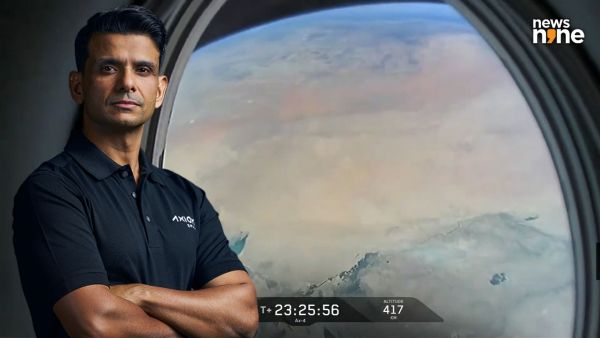
New Delhi: Shubhanshu Shukla, the first Indian to float into the International Space Station (ISS) is sharing his experiences of the incredible journey, revealing responses that are common among astronauts. ‘Go Fever’ is a term used to describe an urge to just launch a mission irrespective of the risks, especially for much-delayed flights where waiting any more becomes unbearable. During a call to the ground after the launch and before docking of the Axiom 4 mission, Shubhanshu Shukla said, “Frankly, when I was sitting in the capsule, Grace, yesterday on the launchpad, the only thought in my mind was, let us just go. After 30 days of quarantine, it was feeling that I just wanted to go, you know. The excitement and all was probably far away, it was just the feeling that, let us just leave here.”
Two days after the docking, Shubhanshu Shukla spoke to Prime Minister Narendra Modi from the orbital complex, and described the experience of seeing the Earth from space for the first time. Shukla said, “If I speak the truth, the first view we had on reaching orbit was that of the Earth. After seeing the world from outside, the first thought to come to mind was that the world is totally one. That means, from outside, there are no geopolitical boundaries, no border is visible. And the feeling of oneness, the oneness of the world… we also have a motto, ‘unity in diversity’, the significance of that hits you after seeing the Earth from outside. It feels like borders do not exist at all, no empires, no countries. Finally, we are all part of humanity, and Earth is our home, and we are all its citizens.” This intense emotional response, common among astronauts, is called the ‘Overview Effect’.
Shubhanshu Shukla has promised to document every moment of the journey, and share the experience. There are additional interactions planned for the days ahead, including a call with school students, and a radio call with the amateur radio community, a long-held tradition for space travel. Shukla will spend the next 12 days living and working on the orbital complex, conducting science experiments that will benefit all humans on Earth, and in outreach activities designed to inspire the next generation of spacefarers. The learnings from the mission will help ISRO plug any gaps and iron out any kinks in the procedures for India’s ambitious Gaganyaan programme to lift humans to Earth orbit using domestic hardware.